How to Prepare the Sale of Your Charleston-based Business
What do you need to focus on to ensure you get the very best price for your Charleston-based business when you do sell?
You’ve always worked hard, toiling for years in the corporate world. While you made a decent salary, you realized there was a bigger piece of the pie out there if you lived the American Dream by becoming a successful business owner.
Ten years ago, you took the plunge and acquired your first business. It was a great decision, affording you the opportunity to send your kids to great colleges, and providing you and your spouse the chance to buy a second home in the mountains. Yes, it was hard work, and it’s been a great run. However, you want to make sure you don’t leave any chips on the table if the economy adjusts downward; you went through the recession in 2008-2009, and never want to live through that situation again.
What do you need to focus on to ensure you get the very best price for your Charleston-based business when you do sell? Make sure you know how to add value to your business by understanding the numbers.
Far too many business owners, while good at their craft, have little understanding of how a business is valued. One may think that, because revenues are growing each year, his or her business must be doing well. However, there are many businesses that have several million dollars in gross revenue but are hemorrhaging money. In contrast, there are other companies within their same industry with lower sales (gross revenue), but are making plenty of money. How? It’s likely that the other companies focus each month on their financials and shore up areas that need to be adjusted so more money flows to the bottom-line.
What should you focus on?
EBITDA
Every business owner should understand their EBITDA, or Earnings Before Interest, Taxes, Depreciation, and Amortization. This is what is left after you pay for materials, wages, rent, phone, etc., etc. And what is left after EBITDA is taken into consideration is Net Income, or what you have left over after you pay Taxes, Interest on loans, and depreciation of equipment or facilities. Consider it to be like what you have left in your checkbook AFTER you’ve paid everything else.
Once you understand EBITDA, you should understand some of the other metrics in financials that can make your bank account look good, or can be the cause of a company going out of business:
Cost of Goods (COG’s)
Cost of Goods (COG’s) typically take up a huge portion of funds to keep a business going, particularly in service or manufacturing related businesses. When I owned my companies, the target was to stay at 25-27% COG’s to Gross Revenue. If we were trending higher than our target, then I knew it was time to increase my prices, make certain we weren’t having too much rework in production, or have a meeting with my suppliers to get their pencil sharpened. Most times, we would do all three to help get our COG’s back in line.
Labor
Labor is another area that pulls a lot of funds out of the company. While you need good people, keep a close eye on this line in the financials each month. For example, it is a common practice for a shop foreman to state he needs more people because they are slammed this month. What does your pipeline reflect? Do you have a huge backlog of orders, or did the holidays result in fewer days this month to get work out the door? What are sales projections? If they are flat, (and you should understand the reasons why!), there is little need to add more people at this time. Also, make sure you know what metric you should target. We had an industry gold standard of 25% of Labor costs versus Gross revenue to achieve. If we went over our 25% target, we looked at overtime paid, rework that was done (which negatively impacts BOTH COG’s and Labor), as well as reminding people to clock in and out for lunch, etc.
Focusing on Delivering a More Robust Bottom-line
Once you better understand the financials, make sure you focus on delivering a more robust bottom-line. If you are entrusting a wholesaler to produce for you versus having your own people produce, find out why. Do you have the right people, and could they be trained to produce what you are “subbing” out to the wholesaler? A key point here is, there is a value component your customer sees in your product. If you buy from a wholesaler, you can only mark that item up so much before your customer starts looking for another source. However, if you can make that same item in-house, you can typically make higher margins at the same sell price as you would via the wholesale route. For example, if you buy raw materials for $1 per item, and have another $1 in labor to finish it, your cost is $2 not including overhead. If you sell that item for $10, you make $8 profit. However, if you buy from a wholesaler at $4 and sell it for $10, then you only make $6 profit. In that case, you have paid more to the wholesaler, made less money, and helped the wholesaler cover his own overhead costs….and not yours!
Place of Business
Another area that one must take great pride in is their place of business. While business may be very good, when a potential buyer wants to see the business, it should look like a showcase and not a problem he or she will have to address. Think of it like when you were interested in buying a home. If you were shown a beautiful home with a well-manicured lawn, you immediately felt it was worth a higher value versus the ramshackle house you were shown earlier. Don’t allow your business to be the ramshackle comparison!
By focusing on these key areas, you have a much better chance to achieve the dream of selling your Charleston-based business for maximum financial gain.
Interested in selling your Charleston-based business? Reach out to Viking Mergers & Acquisitions Charleston today to request a professional business valuation and see how we can help you secure the best price for your business.


